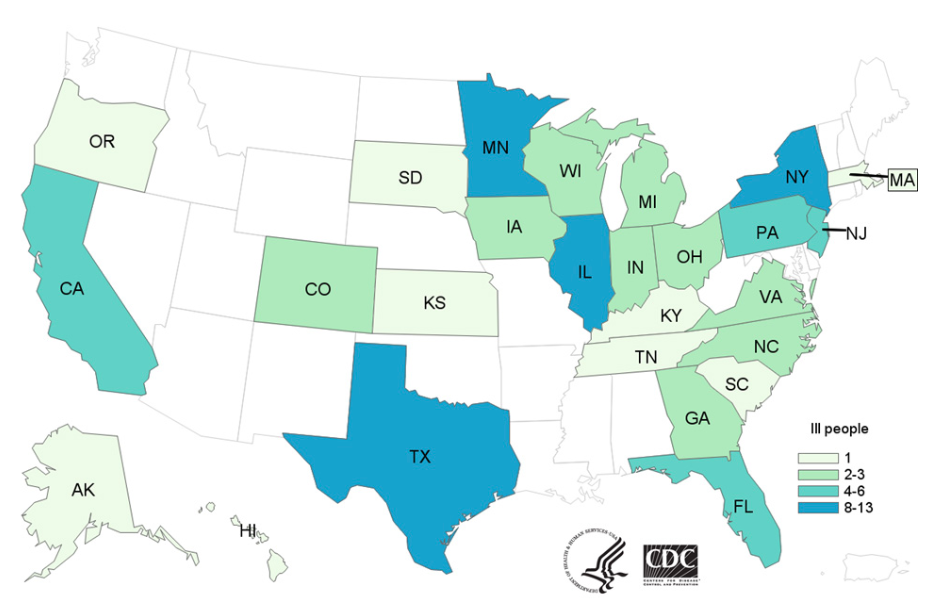Ninety people have been sickened by a drug-resistant strain of Salmonella linked to raw turkey products from multiple sources, according to the Centers for Disease Control and Prevention (CDC). Illnesses have been reported from 26 states, 40 people have been hospitalized.
The Salmonella lawyers at Pritzker Hageman represent clients nationwide who have been sickened by contaminated food. They are currently representing clients in an ongoing outbreak linked to contaminated melon. Contact them online for a free consultation or call them toll-free at 1 (888) 377-8900.
Raw Turkey from a Variety of Sources
Health officials say the outbreak has been linked raw turkey from a variety of sources. Case-patients reported buying the turkey from many different locations. Two of the people who became sick live in a household where raw turkey pet food was served to pets.
The outbreak strain of Salmonella Reading was found in samples taken from raw turkey products, raw turkey pet food, and live turkeys. For example, the outbreak strain was found in Raws for Paws raw pet food produced in Minnesota. In February, 2018, a recall was issued for that pet food. Tests also showed that the strain was present in raw turkey products from 19 slaughterhouses and six processing establishments, and from live turkeys from several states. This indicates that this strain of Salmonella may be widespread in the turkey industry, the CDC stated in its report.
Onset-of-illness dates range from November 20, 2017 to June 29, 2018. Case-patients range in age from less than 1 year to 91 years old. The median age is 41. Sixty-one percent are female.
Salmonella is a bacteria found in animal feces that can contaminate food and cause illness. Symptoms of a Salmonella infection usually develop within six to 72 hours of exposure and include diarrhea, fever, and stomach cramps. Usually, these symptoms last about a week. In some cases, the diarrhea can be so severe that hospitalization is required. In a small percentage of cases, the Salmonella infection can be life-threatening if it spreads from the intestines to the bloodstream and then to other places in the body.

